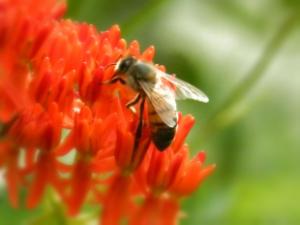Bees, birds, bats, and butterflies; what do they all have in common? They’re pollinators! These animals, along with quite a few others, pollinate both the plants that feed us and make up our ecosystem, and they need our help. One student organization is responding to their call.
This past November, the Student Sustainability Council raised funds for a pollinator garden. Members collected donations and sold succulents on Giving Tuesday with much success. The SSC met their fundraising goals and plan to plant the garden this spring.
So why are pollinators such a big deal? To answer this question, I talked to Katie Steinberg, the leader of this project.
“They’re important in many aspects,” Katie said. “It’s often said that pollinators are responsible for one out of every three bites of food.” She pointed out that they not only aid vegetation growth, but provide us with meat by pollinating animal feed, such as alfalfa. Pollinators also promote biodiversity and are vital components to their ecosystems.
The garden will planted be next to Thwing, adjacent to Claud Foster Park (pictured right prior to planting). Not all plants have been selected but some have been chosen: Butterfly Bushes, Purple Milkweed, Black-eyed Susan, Red Columbine and Cosmos. SSC has been stressing the importance of finding plants that are both indigenous and that bloom throughout every season.
You can help too by planting your own pollinator garden. Check out the ecoregion planting guides offered by Pollinator Partnership, that detail how to plant a pollinator garden specific to your area.
Good luck and happy gardening!
Story by Matthew Haberbusch, Sustainability Ambassador (edited February 2020 for current accuracy).


